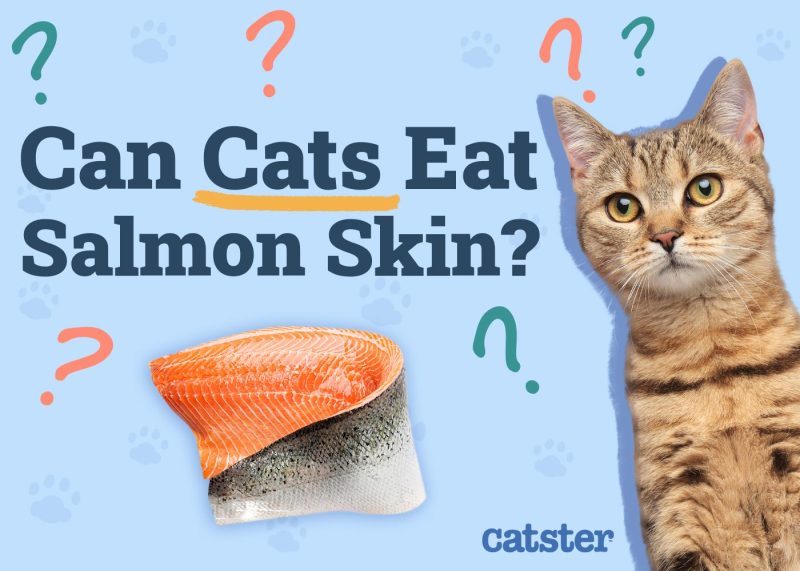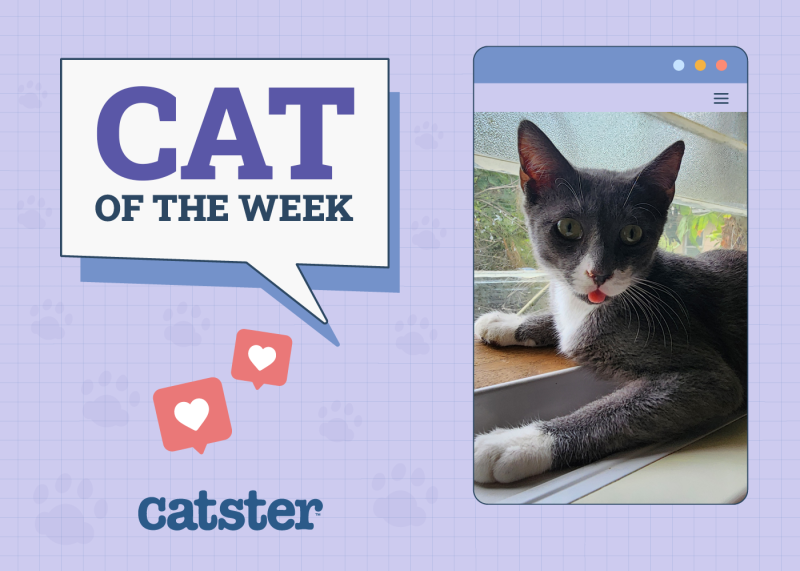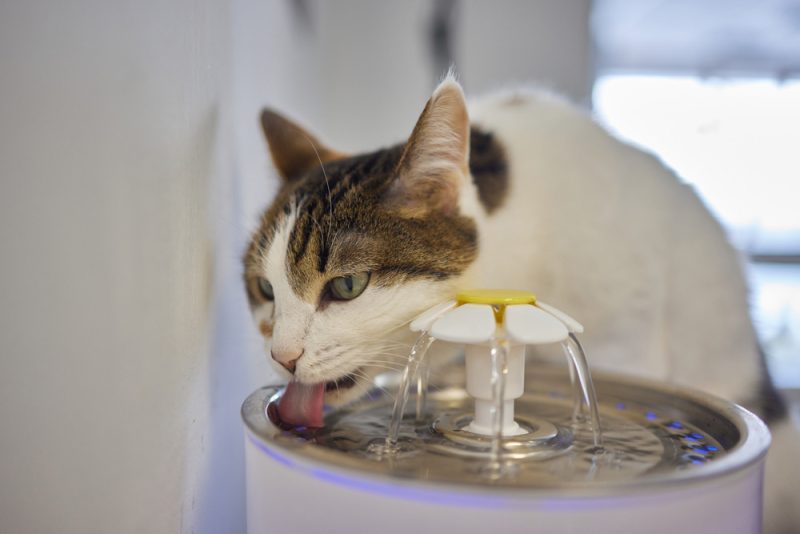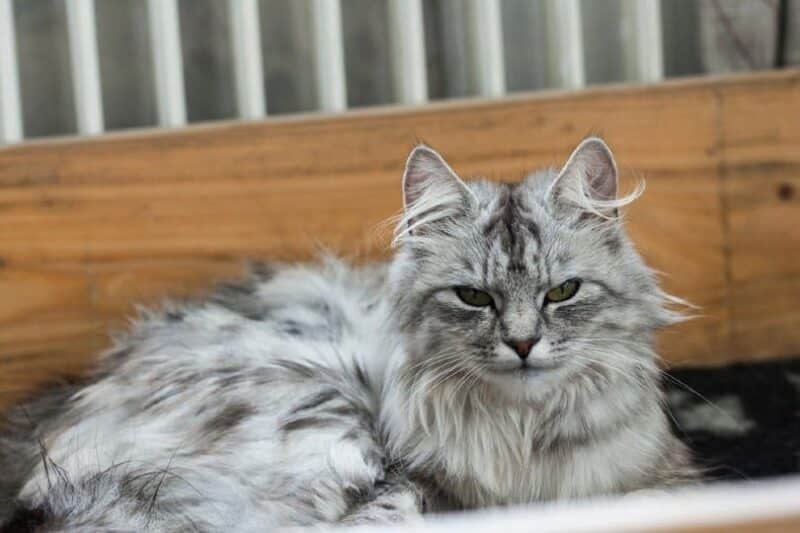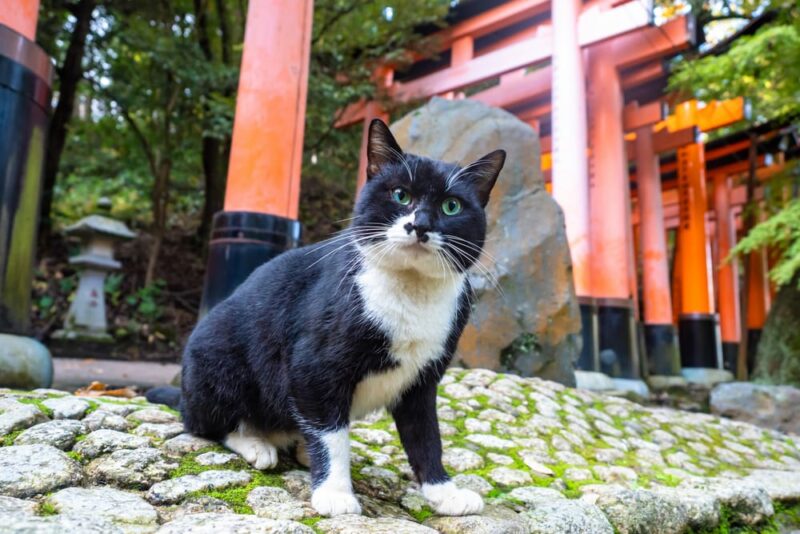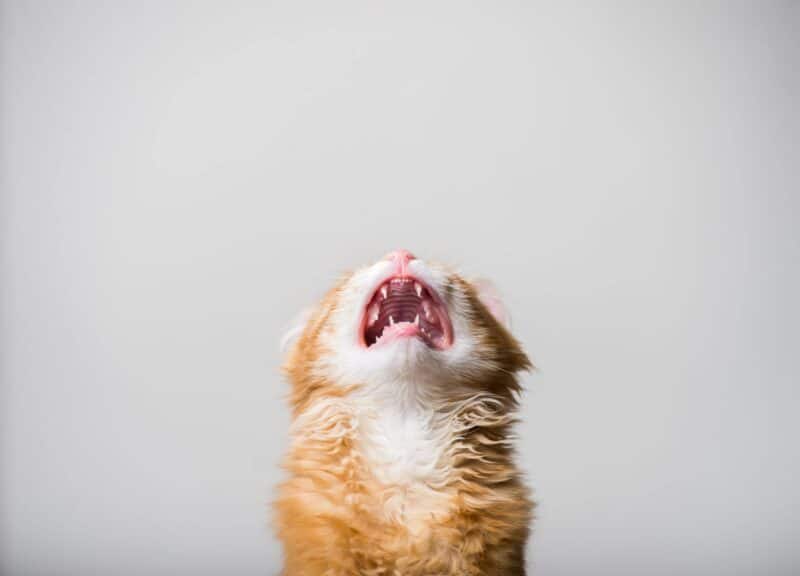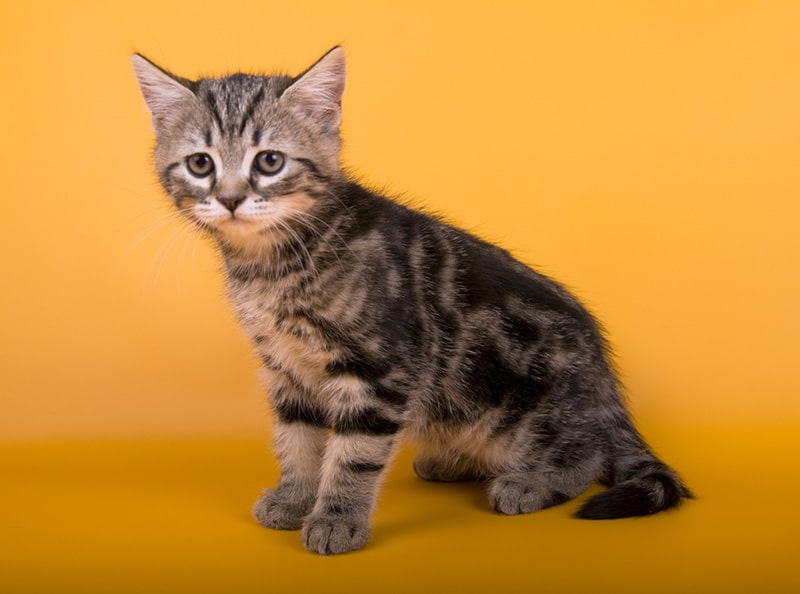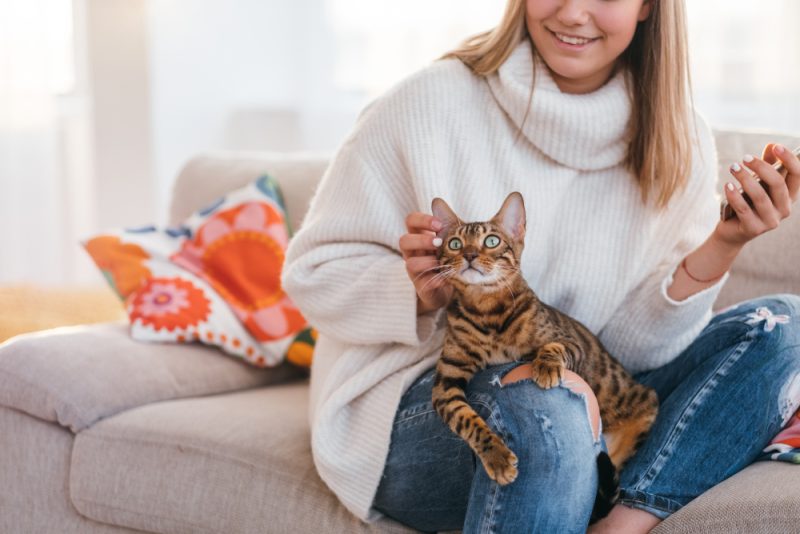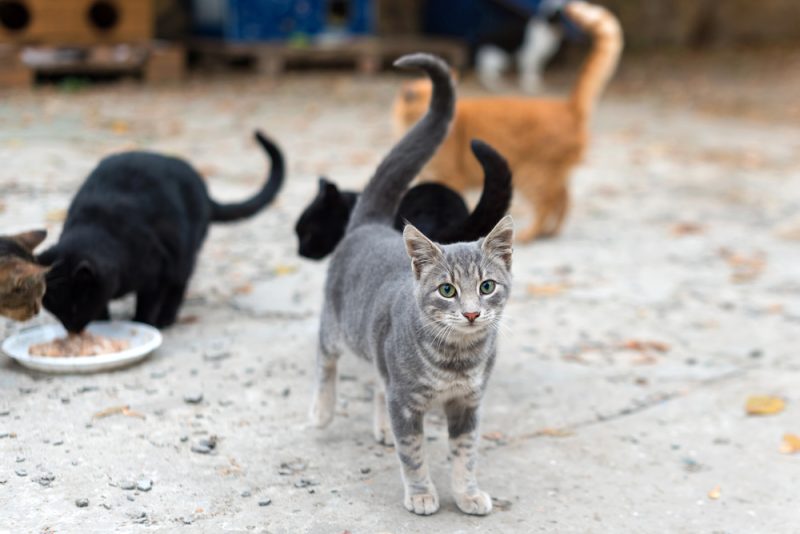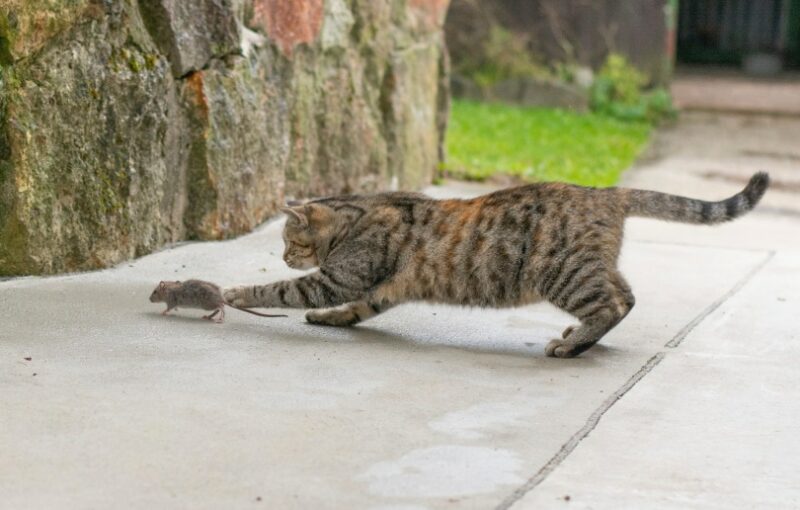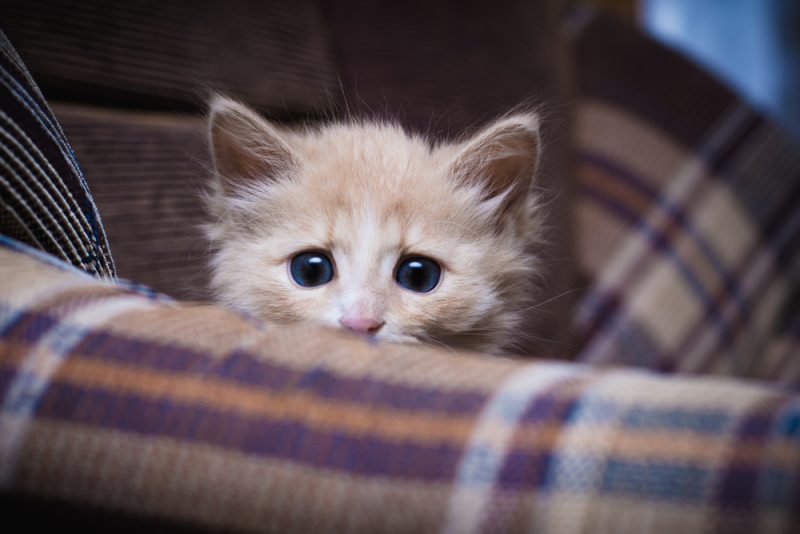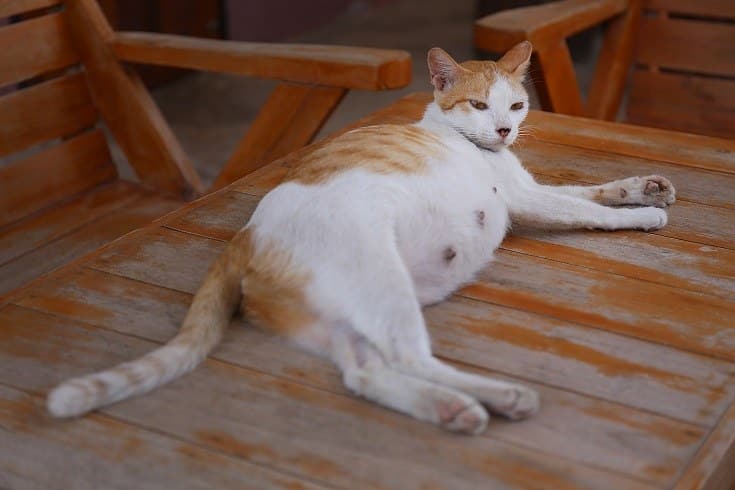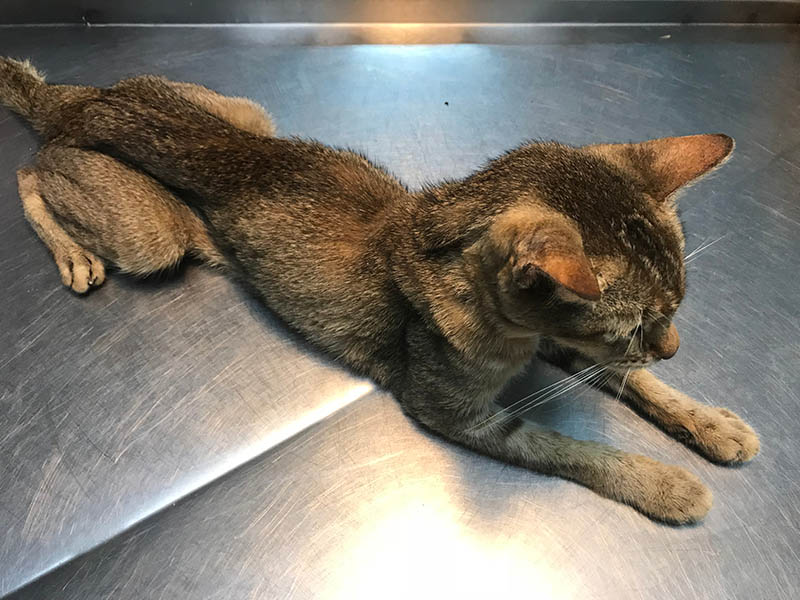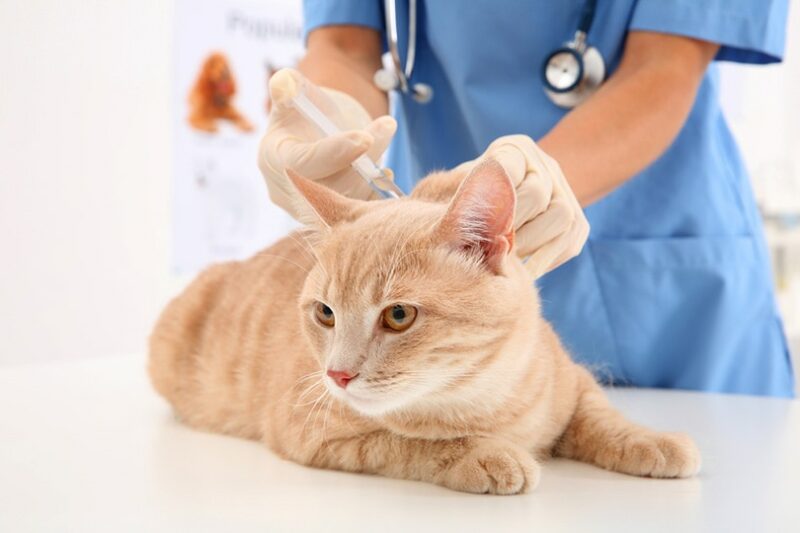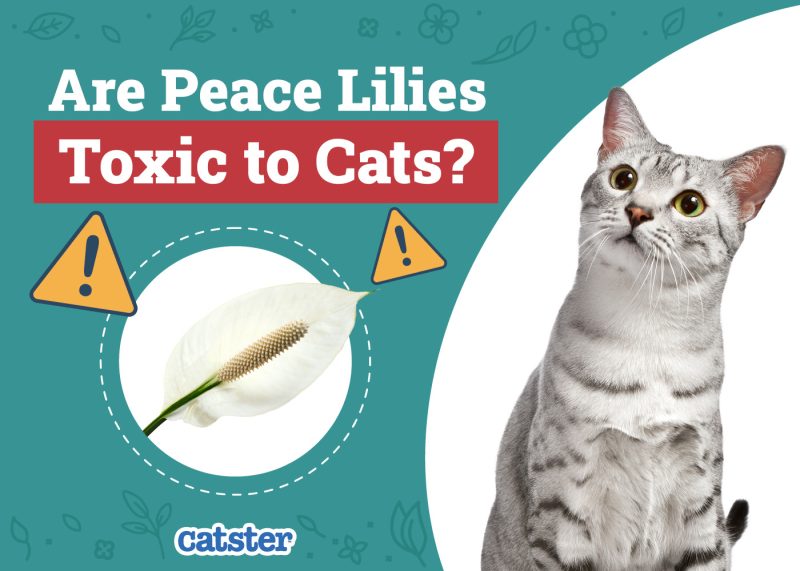In this article
View 3 More +Salmon is an all-time favorite treat for many cats thanks to its tantalizing aroma, but can cats eat salmon skin? As long as the salmon is thoroughly cooked (plain, not with seasonings) and your cat doesn’t have a sensitive stomach, it’s okay for them to eat it with the skin on.
That said, there is a lot more to know about feeding salmon to cats including the health benefits, how often and how much salmon can be fed, and how to prepare it, so read on to find out all the crucial details.

Health Benefits of Salmon & Salmon Skin
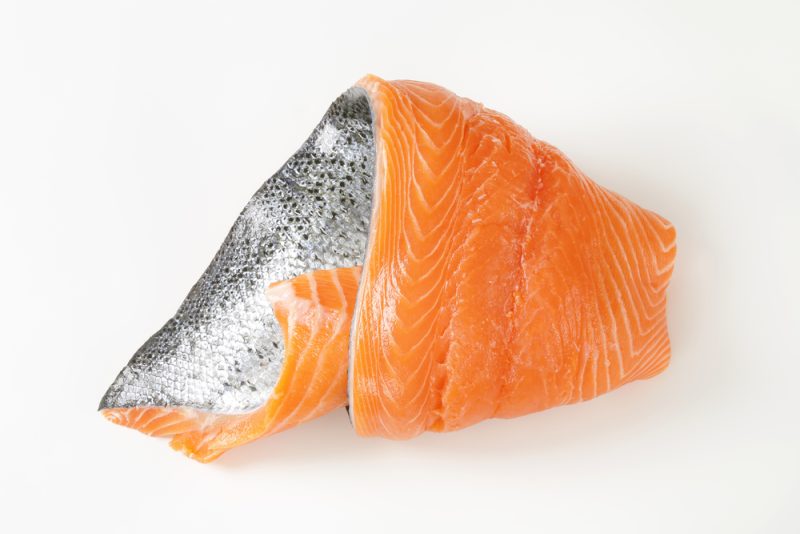
Not only is salmon okay for cats to eat in moderation, but it’s a good source of protein and contains other nutrients that are beneficial for your feline friend. Salmon—both the meat and the skin—is an excellent source of the omega-3 fatty acids docosahexaenoic acid (DHA) and eicosapentaenoic acid (EPA). Cats can’t produce these essential fatty acids themselves, so they need to be included in their diet. Omega-3s support heart health, the brain and help reduce inflammation in the body and improve joint mobility.
Salmon also contains omega-6 fatty acids, which in the right amounts along with omega-3 fatty acids, are beneficial for the skin and coat and contribute to keeping it nice and shiny. These fatty acids can also help reduce dry skin and rashes. In fact, salmon skin has even higher levels of omega-3 and omega-6 fatty acids than the meat itself.
Salmon is also a source of B vitamins, particularly vitamin B12 which is another essential nutrient that cats need to get from their food. B12 is important for your cat’s nervous, digestive and immune systems.
All that said, bear in mind that some cats suffer from fish allergies or intolerances, so salmon won’t be beneficial for every cat. Signs of food allergies to watch out for include itchy skin, skin inflammation and rashes, excessive grooming, hair loss, vomiting, and diarrhea. Abnormal toileting habits, like straining or pooping frequently, are also signs. Salmon may also be unsuitable for cats with underlying health concerns or those on a special diet. Always consult with a vet with any questions about your cat’s diet.
Need veterinary advice but can't get to the clinic? Catster recommends PangoVet, our online veterinary service. Talk to a vet online and get the answers and advice you need for your cat without having to leave your living room — all at an affordable price!

How to Prepare Salmon for Cats
Salmon should be thoroughly cooked, and the fins, head, and bones should be removed before you offer it to your cat. As mentioned in the intro, it’s okay to leave the skin on unless your cat has a sensitive stomach. Avoid feeding too much of it, though—it’s high in fat.
The best cooking methods are poaching, roasting, or grilling. Frying often involves using oils, and these could upset your cat’s stomach. You’ll also want to avoid adding extra seasonings like salt, spices, butter, and garlic (toxic to cats) as these can make cats sick.
Can Cats Eat Raw Salmon?
Fully cooked salmon is less risky because raw salmon could be contaminated with harmful bacteria, including Listeria monocytogenes, E. Coli, and Salmonella. These pathogens can make cats very unwell and cause vomiting, diarrhea, fever, lethargy, and loss of appetite.
In addition, raw salmon contains an enzyme called thiaminase and thiamine deficiency is a potential risk for cats who consume a diet consisting mostly of raw seafood. This manifests itself with various neurological signs, including lack of coordination, seizures, lack of appetite, head tilting, pupil dilation, and neck curling. Thiamine deficiency can even be fatal.
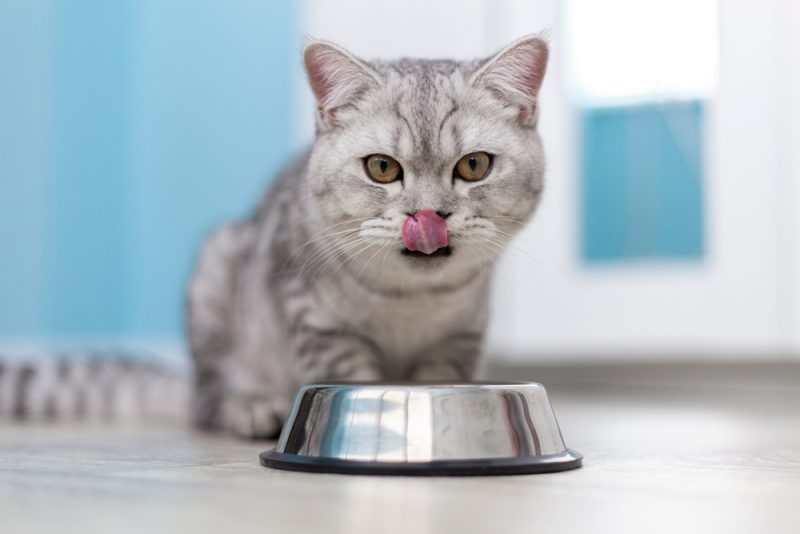
Can Cats Eat Canned Salmon?
If canned salmon is packed in water, it’s okay for cats to eat as long as they don’t have too much. On the other hand, oil-packed canned salmon is too heavy on the digestive system and should be avoided. It’s also a bad idea to feed cats canned salmon containing salt or other seasonings.

How Much Salmon Is Okay for Cats?
Salmon is a common ingredient in many complete and balanced formulas that are available commercially. If you’ve opted for one of these formulas, your cat may be eating salmon on a daily basis.
However, there’s a difference between eating salmon in the form of a nutritionally complete food formula and eating fresh salmon prepared at home. Salmon (or indeed, any kind of fish or meat) alone cannot give your cat all the nutrients they need to stay healthy, so it should only be fed in moderation and as a special treat.
As a general guideline, treats and other “extras” like human foods shouldn’t exceed 10% of a cat’s daily calorie intake. One way to offer salmon is to pop a few pieces in your cat’s food bowl once or twice a week.
Can Cats Eat Tuna?
Tuna is popular with many cats for the same reason as salmon—its pungent aroma is alluring to them. However, as with other kinds of fish and meat, tuna should only be offered in small amounts and on occasion rather than as part of a cat’s main diet. Cats can’t derive all the nutrients they need from tuna alone.
Tuna can also be linked to mercury poisoning because it’s a type of fish that’s harvested quite late. Fortunately, it’s very rare for cats to experience tuna mercury poisoning, but it could happen if a cat manages to eat an excessive amount of tuna. Signs include lack of coordination, uncontrolled eye movements, weakness, tremors, convulsions, and blindness.
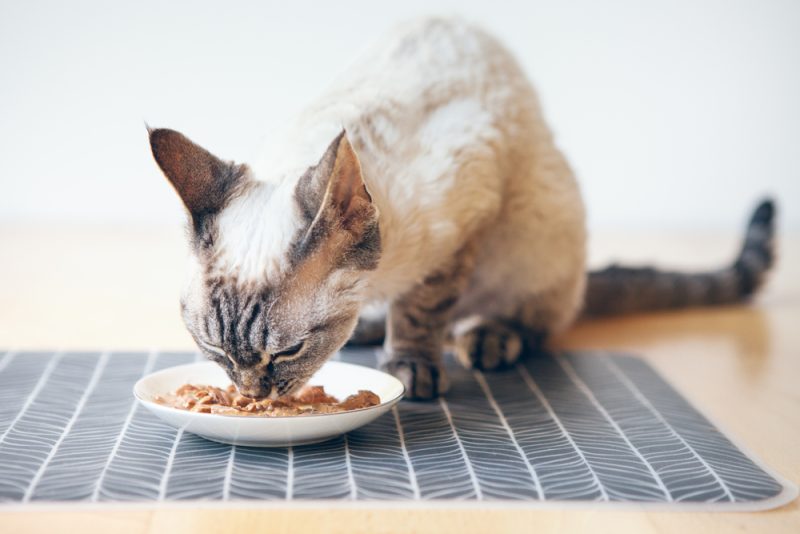
Unsafe Human Foods for Cats
There are many human foods, like cooked salmon, that cats can safely enjoy in moderation. That said, it’s important to be aware that not every kind of food is safe for cats. The reasons for these foods not being safe vary; some are toxic, some are choking hazards, and some can cause digestive upset. Unsafe foods include:
- Onions
- Garlic
- Chives
- Caffeine
- Alcohol
- Chocolate
- Raisins
- Grapes
- Dairy products (including milk)
- Raw meat
- Raw fish
- Raw eggs
- Liver (when fed in excess)
- Bones
- Fat trimmings
- Yeast dough
- Seeds, rinds, leaves, and stones of fruits

Final Thoughts
To recap, cats can have salmon skin as long as the salmon has been thoroughly cooked with the head, bones, and fins removed, and your cat doesn’t have any underlying health concerns. Furthermore, salmon skin shouldn’t be offered in large amounts or too frequently: It should be treated as a special snack rather than a staple of a cat’s diet. If you have any questions or concerns about your cat’s diet, please speak to a vet for advice.
Featured Image Credit: Lost Mountain Studio, Shutterstock
